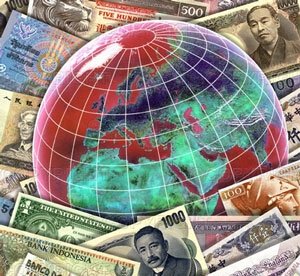Emerging World buys $10 billion in gold as West wobbles
August 3, 2011
By Amanda Cooper
Reuters
August 3, 2011
Central banks of emerging market countries such as Korea and Thailand have added more than $10 billion (6 billion pounds) of gold to their reserves this year in a sign of waning faith in the West’s benchmark bonds and currencies like the dollar and the euro.
International Monetary Fund data for June Wednesday showed Thailand bought gold for the second time this year, raising its reserves by nearly 19 tonnes to over 127 tonnes, while Russia bought another 5.85 tonnes, bringing its reserves to 836.7 tonnes, the world’s eighth largest official stash of the metal.
So far in 2011, emerging market central banks have bought nearly 180 tonnes of gold, more than double the roughly 73 tonnes purchased by central banks globally in the whole of 2010.
The spot price of gold has risen by more than 17 percent this year to a record $1,672.65 an ounce, driven chiefly by investor concerns over the impact on the developed world’s economy of its debt burdens and sluggish growth.
Mexico has been the largest buyer of gold in the year to date, with $5.3 billion worth of purchases, or 98 tonnes of gold, followed by Russia, which has bought 48 tonnes, worth $2.6 billion at current prices.
Earlier this week, Korea confirmed it had bought 25 tonnes of gold in June and July.
“Central banks evidently do not regard the price level as too high and are diversifying their currency reserves. This was the first purchase of gold for the Korean central bank in over ten years,” said Commerzbank metals analyst Daniel Briesemann.
“Gold’s high-altitude flight still appears to be supported by many factors and an end to the boom soon is not in sight.”
In the euro zone, smaller economies such as Greece, Portugal and Ireland have already sought emergency funding, while concern is mounting over the finances of some of the region’s larger members such as Spain and Italy, driving the euro to record lows against the safe-haven Swiss franc.
The United States averted an unprecedented debt default on Tuesday after lawmakers reached an eleventh-hour deal to raise the country’s borrowing limit, although severe doubts remain about the economic outlook, stripping 6 percent off the value of the dollar this year.
DEBT MISERY
The U.S. economy is also likely to lose its top-notch credit rating as ratings agencies are increasingly discomfited by the weight of the twin trade and budget deficits and the country’s patchy growth.
A downgrade will almost certainly push up yields on U.S. Treasury notes as their value falls, which could prove unwelcome to the major investors in U.S. debt such as the Chinese government, which holds nearly $900 billion in Treasuries.
The trend among central banks, particularly those with large foreign exchange holdings, to diversify some of their portfolios into gold from currencies has been well established over the last couple of years.
“The market generally expects central banks with growing reserves and small gold holdings to buy gold,” said Jesper Dannesboe, senior commodity strategist at Societe Generale.”
“So I don’t think that is particular surprising, but it does support the bullish story (for gold),” he said.
Central banks are expected to remain net buyers of gold this year and the most likely buyers will be those with the biggest reserves and relatively small bullion holdings, such as China.
The Chinese central bank is the sixth largest official owner of gold, yet its holdings account for just 1.6 percent of its $2.5 trillion total reserves.
The IMF data showed Russia, Kazakhstan, Greece, Ukraine and Tajikistan also added to their reserves two months ago and feature among some of the bigger bullion buyers this year.
Kazakhstan’s reserves rose for the third time this year, by 3.11 tonnes in June to 70.434 tonnes, Taijikistan’s reserves rose 0.04 tonnes to 3.036 tonnes and Greece and Ukraine added 0.03 tonnes each, bringing their official holdings of gold to 111.506 tonnes and 27.744 tonnes, respectively.
Russia has added to its gold reserves every month for the past five years, according to the IMF’s data.



